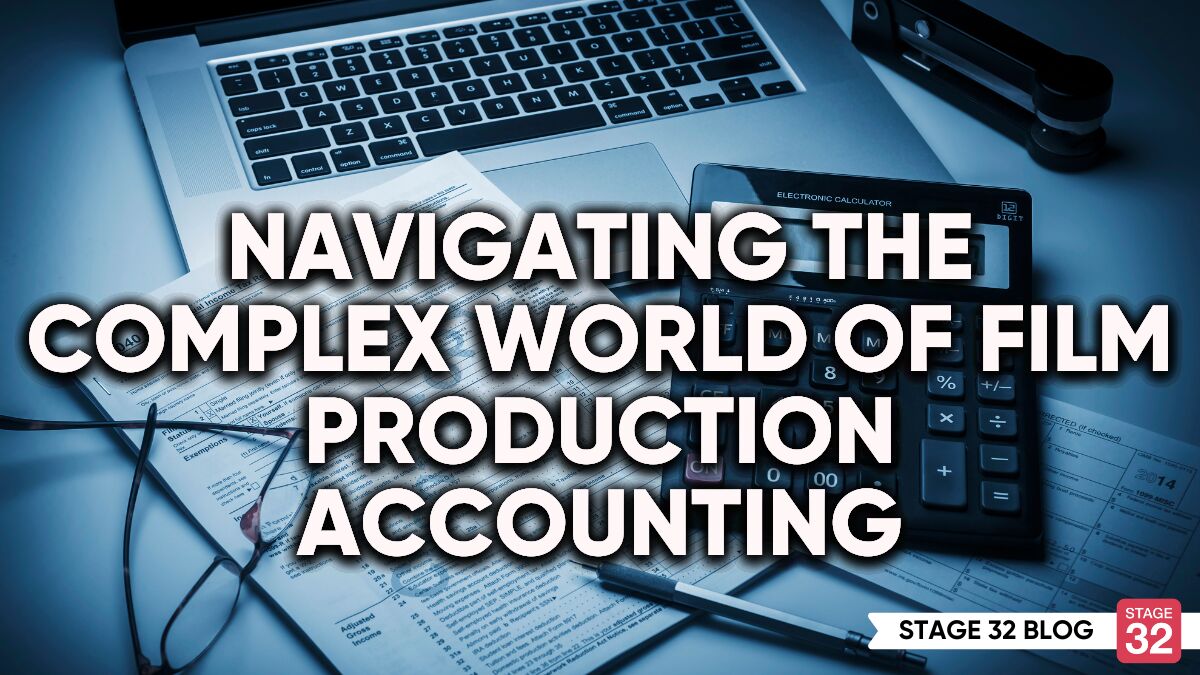Navigating the Complex World of Film Production Accounting
Why Up-to-Date Cost Reports Matter & How to Solve Common Issues
Film production is a fascinating intersection of creativity and complexity, where every detail—from the script to the screen—requires meticulous management. Yet, amidst the excitement of making movies, managing finances often feels like navigating a labyrinth. Producers, line producers (LPs), and accountants regularly face challenges, especially when it comes to tracking and managing expenses. A common scenario that epitomizes this struggle is when executive producers (EPs) demand up-to-date cost reports, but accounting teams grapple with missing receipts and financial discrepancies. This not only creates frustration but can also disrupt the smooth flow of the entire production. Here’s a comprehensive guide to understanding why accurate cost reports are crucial and how to tackle common issues effectively.
The Reality of Cost Reports During Production
The idea that cost reports are perfectly accurate and up-to-date throughout production is a bit of an idealistic fantasy. In reality, these reports often lag behind the actual expenses due to several factors:
High Volume of Transactions:
Film production involves a staggering amount of transactions. From set construction and location fees to equipment rentals and crew salaries, the sheer volume of financial activity can be overwhelming. Tracking every expense in real-time is a monumental task, and discrepancies are almost inevitable.
Delayed Receipt Submission:
Certain departments, such as art and wardrobe, might delay submitting their receipts. Whether it’s because they’re waiting to finalize returns or simply bogged down with their tasks, these delays can result in cost reports that don’t reflect the full picture of spending. This mismatch can lead to confusion and financial inaccuracies.
Categorization Errors:
Errors in categorizing expenses are common. For example, a gaffer might receive additional funds on his paycheck because of a reimbursement, but if these funds are not recorded correctly, it can lead to discrepancies in the financial reports. Misclassification of expenses can make the reports appear inaccurate and unreliable.
The Art and Wardrobe Departments: Unique Challenges
Departments like art and wardrobe have unique financial practices that contribute to reporting challenges. These departments are often swamped with creative tasks and may not prioritize immediate receipt submission. For instance:
Art Department:
This department might hold onto receipts for returns or adjustments, which means the accountant’s records are not always up-to-date. They’re focused on their creative tasks, so financial documentation can get pushed until after wrap.
Wardrobe Department:
Similar to the art department, wardrobe teams may delay receipt submission due to the sheer volume of work involved in managing costumes. They might be dealing with last-minute changes or returns, which further delays their financial reporting. Every film is different and while wardrobe is known to be the most meticulous in their record keeping (oh how I adore you!), they have their own systems that often aren’t communicated to accounting in real time, unless the producers are savvy and opt for certain types of systems.
Accounting departments are bound by strict protocols and cannot make assumptions. They rely on the receipts and documentation provided to them to prepare accurate cost reports. If these documents are delayed or missing, it directly affects the cost reports' accuracy and, consequently, the financial management of the production.
The Consequences of Inaccurate Cost Reports
Inaccurate cost reports can have significant and far-reaching consequences:
Cash Flow Issues:
Effective cash flow management relies on accurate cost reports. If reports are outdated (even by a week) or incorrect, it can lead to miscalculations regarding the funds needed for ongoing expenses. This miscalculation can delay vendor payments and payroll, causing disruptions and potential financial strain.
Tax Incentive Management:
Many film productions rely on tax incentives, which require precise tracking of expenditures. Each jurisdiction—whether it’s a state, county, or city—has its own guidelines. Inaccurate cost reports can result in missed opportunities for maximizing these incentives, which can be financially detrimental.
Budgetary Mismanagement:
Discrepancies between reported and actual spending can lead to misunderstandings and conflicts. For example, if an EP notices a discrepancy between the reported costs and actual expenses, it can lead to unnecessary tension and stress among the production team.
The Producer's Role in Establishing Financial Systems
Producers play a crucial role in establishing a solid financial foundation for the production. Often, producers assume that accounting departments will handle all financial matters without issue. However, this can lead to problems if the necessary systems and protocols are not in place from the start.
Here’s how producers can help prevent financial issues:
Pre-Production Planning:
Producers should work closely with accountants to set up clear financial systems before production begins. This includes establishing protocols for receipt submission, expense categorization, and regular updates to cost reports. You should have an accounting partner lined up before you receive your funding.
Clear Communication:
It’s essential to communicate expectations clearly to all departments regarding financial documentation. Everyone needs to understand the importance of timely receipt submission and accurate expense reporting.
Regular Check-Ins:
Implement a routine for reviewing and updating cost reports. Regular check-ins can help catch discrepancies early and keep the financial side of the production on track.
Flexibility and Adaptability:
Production environments are dynamic and can be unpredictable. Producers need to be prepared to adapt their financial strategies as needed and address any issues promptly to avoid larger problems.
Best Practices for Managing Film Production Finances
To ensure smooth financial management throughout production, consider these best practices:
Establish Efficient Systems:
Develop and implement efficient systems for tracking expenses, managing receipts, and updating cost reports. Having a clear, organized system in place from the beginning can prevent many common issues.
Educate and Train:
Provide training for all departments on the importance of financial documentation and the procedures for submitting receipts and categorizing expenses. Education helps ensure that everyone is on the same page and reduces the risk of errors.
Monitor and Adjust:
Continuously monitor financial reports and be ready to make adjustments as needed. Regularly review reports for accuracy and address any discrepancies promptly to maintain financial stability.
Foster Collaboration:
Encourage collaboration between producers, accountants, and all departments. A collaborative approach helps ensure that everyone understands their role in maintaining accurate financial records and can address issues together.
Conclusion
Film production accounting is a complex and challenging field that demands attention to detail and proactive management. Accurate cost reports are vital for effective cash flow management, maximizing tax incentives, and ensuring the smooth operation of the production. However, the realities of film production often lead to discrepancies and delays that can impact financial management.
Producers play a pivotal role in setting up effective financial systems before production begins. By working closely with accounting departments and implementing best practices, producers can address common issues, streamline financial processes, and ensure a more efficient and successful production. Planning better, spending smarter, and recovering quicker are the keys to navigating the intricate world of film production accounting. With the right systems and support in place, the production team can focus on their creative work while maintaining financial stability and accuracy.
Your meticulous books will create happy EPs and happy EPs develop strong funding relationships to keep your creative endeavors going. Having an accounting system in place before funding will show EPs how serious you are about taking care of their money.
Let's hear your thoughts in the comments below!
Got an idea for a post? Or have you collaborated with Stage 32 members to create a project? We'd love to hear about it. Email Ashley at blog@stage32.com and let's get your post published!
Please help support your fellow Stage 32ers by sharing this on social. Check out the social media buttons at the top to share on Instagram @stage32 Twitter @stage32 Facebook @stage32 and LinkedIn @stage-32
| What Is Cinematic? |
| Coffee & Content: What Are 3 Things That Motivate You? |
Search Stage 32 Blog
There are now 4044 blog posts for you to enjoy. Search them all by tags below.
Acting, Advice, Cinematography, Coffee & Content, Composing, Contests, Distribution, Featured, Filmmaking, Financing, Inspirational, Networking, Producing, Screenwriting, Success Stories, Tips, Trending,Relevant Tags
Recommended Articles

Coffee & Content: Why Your Next Step Matters More Than the Perfect Step

4 Reasons To Have Audio Description On Your Film

Don't Let the Momentum of November Write Club Die: How to Stay Active Into 2026 & Beyond!

Insider Intel: 2025- Your Year of Breakthroughs (+ What's Coming in 2026)

Stage 32 Is My Magic Key To International Networking And Education

Stage 32 Now Certifying the Dallas Film Commission!

Green Lights and Grey Areas: Expanding Creative Collaboration in Publishing

Insider Intel: Packaging your Project- The Chicken or the Egg Dilemma

How to Get Help from Stage 32: Meet the Teams Behind the Scenes









